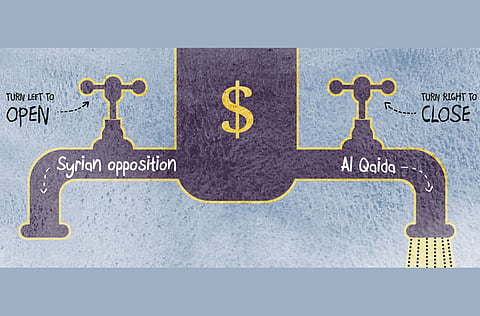US needs to shift course in Syria
Core US interests are at stake and the status quo cannot continue

The Syrian regime’s unwillingness to seriously engage in Geneva makes clear that a parallel effort must be made to shift the regime’s calculations and to allow the US and the moderate opposition to return to negotiations in a better position. That is the only way this brutal war will stop.
Events in Homs illustrate the depravity of Syrian President Bashar Al Assad’s strategy of misery, but the conflict has taken on an ominous security dimension for the US in recent months. Al Assad’s intensified assault, including his unrelenting bombardment of the more moderate elements of Syria’s opposition, has created a vacuum that is being filled by jihadist groups, who are also a threat to America. Director of National Intelligence James Clapper and CIA Director John Brennan told Congress last month that eastern Syria is becoming a haven for Al Qaida and its affiliates — such as Jabhat Al Nusra and the Islamic State of Iraq and the Levant — and that some aspire to attack America. Clapper testified that the Syrian insurgency has more than 7,000 foreign fighters. Many will return to their homes in Europe and elsewhere as trained, hardened combatants.
With no political solution immediately forthcoming, the US needs to shift course. The Geneva process should continue; it is how the war will end. However, the US must pursue a strong set of actions that would address the immediate threat posed by Al Qaida in Syria and give Geneva a chance to succeed. The US will not be able to defeat Al Qaida in Syria by itself. To counter Al Qaida, the US must strengthen the relatively moderate elements among the opposition. Only these groups, who speak and fight for the majority of the population and share the Syrian people’s desire to be rid of both Al Assad and foreign fighters, can seize and hold the ground claimed by the jihadists. US officials believe that the majority of fighters are not associated with Al Qaida, though some are Islamists. Indeed, in recent weeks, these forces have stood up against Al Qaida in parts of Syria. If America does not help them now, it could find itself responding to a terrorist attack originating from a new Al Qaida enclave in eastern Syria — drawn in on its terms and timetable.
Fortunately, America can strengthen the moderate opposition in ways that will push back Al Qaida’s gains and help change Al Assad’s equation. First, the US needs to provide the moderate anti-Al Assad, anti-Al Qaida forces the assistance they need to attract people away from the extremists — to build up liberated areas and counter regime attacks so they can focus on Al Qaida. One of the best ways to do so may be by delivering cash to pay salaries in liberated areas. By helping the opposition’s local government councils pay teachers, medical workers, civil servants and police officers, the US can help them gain legitimacy and establish public order, creating a more viable alternative to the extremists and the Al Assad regime. A similar approach can be pursued to bolster the brigades fighting Al Qaida. Arms are also needed, but arms transfers are logistically complex and take a long time. Meanwhile, opposition fighters must feed themselves and their families. And extremist groups, flush with cash from their supporters in the Gulf, pay more reliably and generously. It will be critical to vet opposition leaders and brigades receiving cash assistance while being realistic: Some may be diverted to bad actors. The alternative is that those bad actors will continue getting most of the assistance flowing into opposition areas, while the moderates get none.
Second, as the US works to bolster the moderate opposition, the corollary is to limit the flow of arms to the Al Assad regime and extremist groups. The most effective method is to impose carefully targeted sanctions on banks that finance arms shipments to the regime and on financiers of Al Qaida. Targeting these institutions will create obstacles to the regime’s resupply efforts and will place pressure on Al Assad’s international supporters to help the US achieve a diplomatic resolution.
Finally, if the US wants to win the Syrian opposition’s full support against Al Qaida, it must be willing to help it protect civilians from Al Assad’s atrocities, including the barrage of “barrel bombs” falling on opposition-held towns. Hindering Al Assad’s use of helicopters and jets to kill civilians will enable the moderate Syrian opposition to demonstrate that it has helped deliver some freedom from the constant fear of death from the air. It also will allow them to divert resources to fight extremists. There are many ways to achieve this goal with partners and allies, from working with proxies in the region to airstrikes — actions limited in scope and that do not involve US troops on the ground.
When America looks at Syria, it cannot simply see missed opportunities from three years of conflict. Core US interests are at stake and the status quo cannot continue. While there are risks to these steps, the alternative is far worse: Al Qaida recovering from the blows the US has dealt it and gaining a new stronghold — and Al Assad continuing his butchery. America must alter the circumstances to protect itself and to return to the negotiating table in a position to succeed.
— Washington Post
Samuel R. Berger is chairman of the Albright Stonebridge Group. He was national security adviser to president Bill Clinton from 1997 to 2001.


